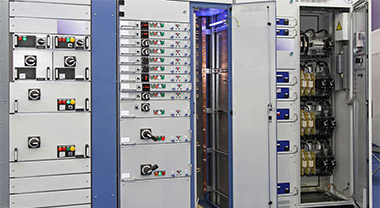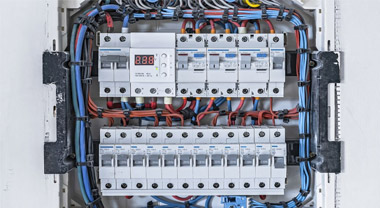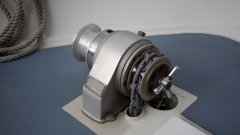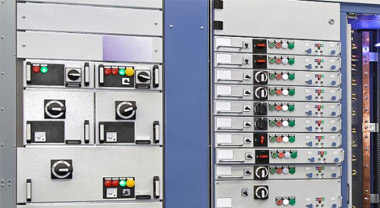Why are circuit breakers better than fuses?
This blog post delves into the world of electrical protection devices, specifically focusing on circuit breakers and fuses. Although both are designed to safeguard electrical circuits from damage caused by overloads and short circuits, they function differently and offer distinct advantages. In this guide, we'll explore the workings of these two components and discuss why circuit breakers are often considered superior to fuses. This article aims to provide clear, concise, and accurate information to help you understand these two critical elements in electrical systems.
Table of Contents
- Introduction to Circuit Breakers and Fuses
- What are Circuit Breakers?
- What are Fuses?
- Circuit Breakers Vs. Fuses
- Why Circuit Breakers are Considered Better
- Summary and Conclusion
Introduction to Circuit Breakers and Fuses
In electrical systems, protecting the circuit from overloads and short circuits is a fundamental requirement. Both circuit breakers and fuses serve this purpose, but they do so in different ways. Understanding their working mechanisms, pros, and cons will help you make an informed decision on which device is most suitable for specific electrical system needs.
What are Circuit Breakers?
Circuit breakers are automatic safety devices designed to prevent damage to an electrical circuit. They do this by detecting any overload or short circuit and interrupting the electrical flow by "tripping" or switching themselves off. This interruption prevents further damage and potential electrical fires.
Types of Circuit Breakers
There are several types of circuit breakers, each designed for different applications. Some of the common types include:
- Air Circuit Breakers (ACB): These use air as the arc extinguishing medium.
- Miniature Circuit Breakers (MCB): Designed for smaller loads, they offer protection against overloads and short circuits.
- Residual Current Circuit Breaker (RCCB): These are designed to prevent electric shock and protect against fire hazards.
What are Fuses?
Fuses are another type of protective device used in electrical systems. They work as a sacrificial component that melts or "blows" when the current flowing through it exceeds its rated capacity. By doing this, the fuse breaks the circuit and protects the remaining components from damage.
Types of Fuses
There are numerous types of fuses designed to cater to different applications, including:
- Cartridge Fuses: These are common in automotive applications and come in a cylindrical cartridge.
- Blade Fuses: Used widely in cars and trucks, they come in a plastic body with two prongs that fit into sockets.
- Resettable Fuses (PTC): These automatically restore the circuit once the fault condition has been cleared and the circuit cools down.
Circuit Breakers Vs. Fuses
Though both circuit breakers and fuses aim to protect electrical circuits from damage due to overcurrent, they do so in different ways, offering distinct advantages and disadvantages. Let's compare the two based on a few critical parameters.
Resetting Capability
When a circuit breaker trips due to an overload or short circuit, it can be reset manually or automatically, allowing it to be used repeatedly. On the contrary, when a fuse blows, it must be replaced, which can be inconvenient and result in additional costs over time.
Response Time
Fuses can often respond to overcurrent situations faster than circuit breakers, providing potentially superior protection for certain sensitive electronic equipment. However, the quick reaction of fuses can also lead to nuisance blowing, which can be inconvenient.
Cost and Installation
Circuit breakers are generally more expensive than fuses and require a more complex installation process. However, this higher initial cost can be offset over time as circuit breakers do not require replacement after a fault, unlike fuses.
Why Circuit Breakers are Considered Better
While both circuit breakers and fuses serve the same basic purpose, there are several reasons why circuit breakers are often preferred over fuses.
- Resetting Capability: Circuit breakers can be easily reset after a trip, making them more convenient than fuses, which need to be replaced after blowing.
- Cost-Effectiveness: Although circuit breakers have a higher upfront cost, they can be more cost-effective in the long run as they don't need to be replaced after a fault.
- Safety: Circuit breakers offer a safer operation, as they do not expose live electrical parts when they trip, unlike fuses, which can potentially expose live wires during replacement.
Ease of Use
Circuit breakers are easier to use and more accessible for the average homeowner. When a circuit breaker trips, it's usually easy to identify the problem circuit from the panel. In contrast, if a fuse blows, it can be more challenging to find the affected fuse and replace it, especially for those unfamiliar with electrical systems.
Detection of Fault Conditions
Some advanced circuit breakers, such as Ground Fault Circuit Interrupters (GFCI) and Arc Fault Circuit Interrupters (AFCI), can detect ground faults and arc faults, respectively. These faults may not cause an overcurrent condition, and thus, a fuse might not respond to them. This additional layer of protection can prevent electrical fires and protect against electric shock, making circuit breakers a safer choice.
Summary and Conclusion
In the world of electrical systems, both fuses and circuit breakers play a critical role in protecting circuits from damage caused by overloads and short circuits. Fuses, being a sacrificial component, melt when the current exceeds their rating, effectively disconnecting the circuit. Circuit breakers, on the other hand, "trip" or switch off automatically in response to overcurrent, which can be reset once the fault is resolved.
While both devices have their merits, circuit breakers are generally considered superior due to their reset capability, cost-effectiveness over time, enhanced safety features, ease of use, and ability to detect certain types of fault conditions. However, the choice between a fuse and a circuit breaker will ultimately depend on the specific needs and constraints of the electrical system in question.
This guide aimed to shed light on the functions, advantages, and disadvantages of circuit breakers and fuses, and to illustrate why circuit breakers are often considered better. For more information on this topic or other electrical matters, feel free to explore our other resources.




